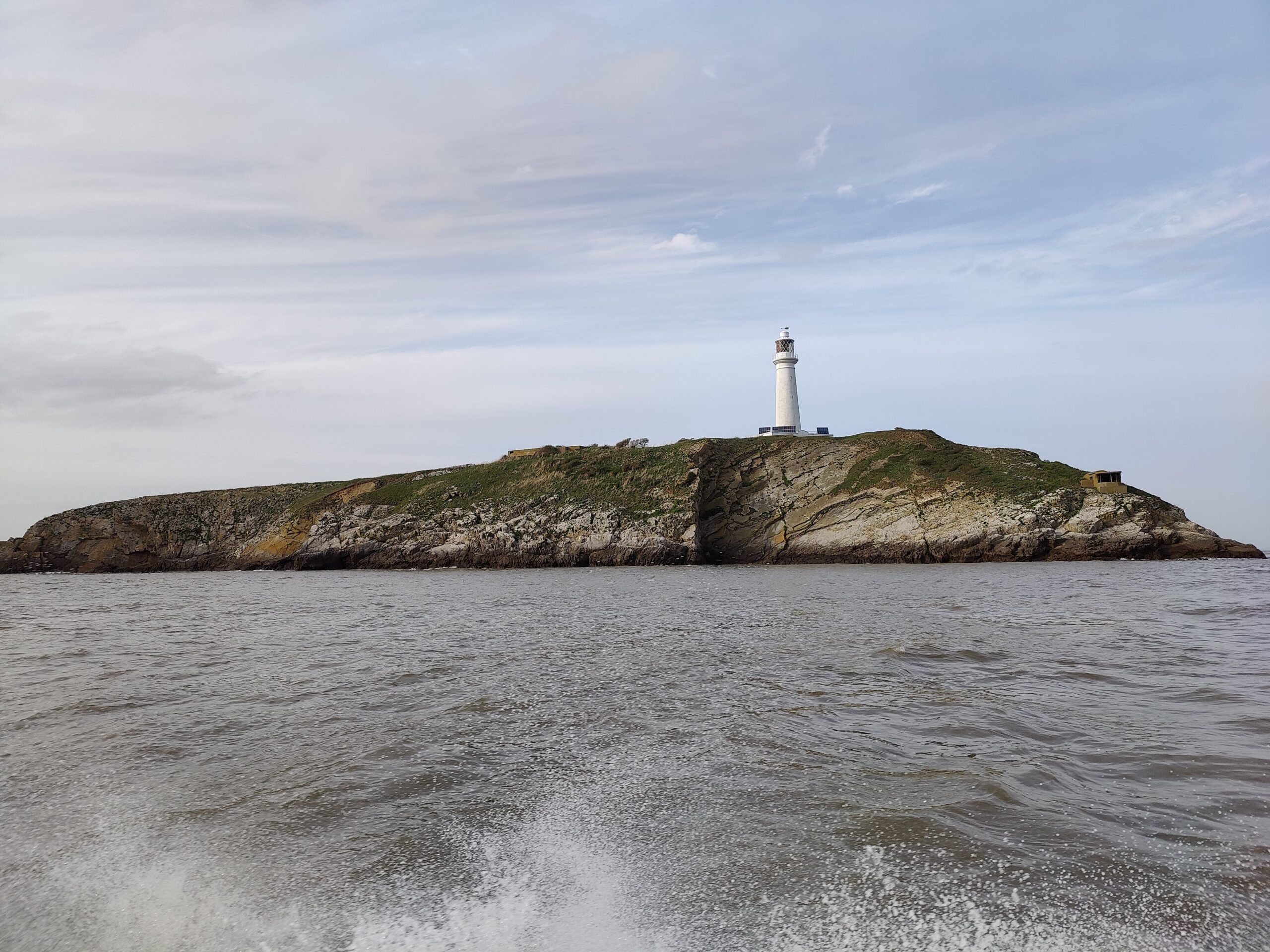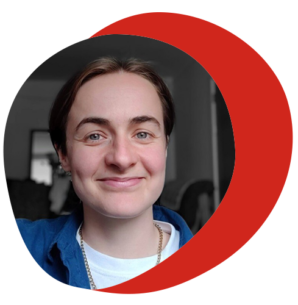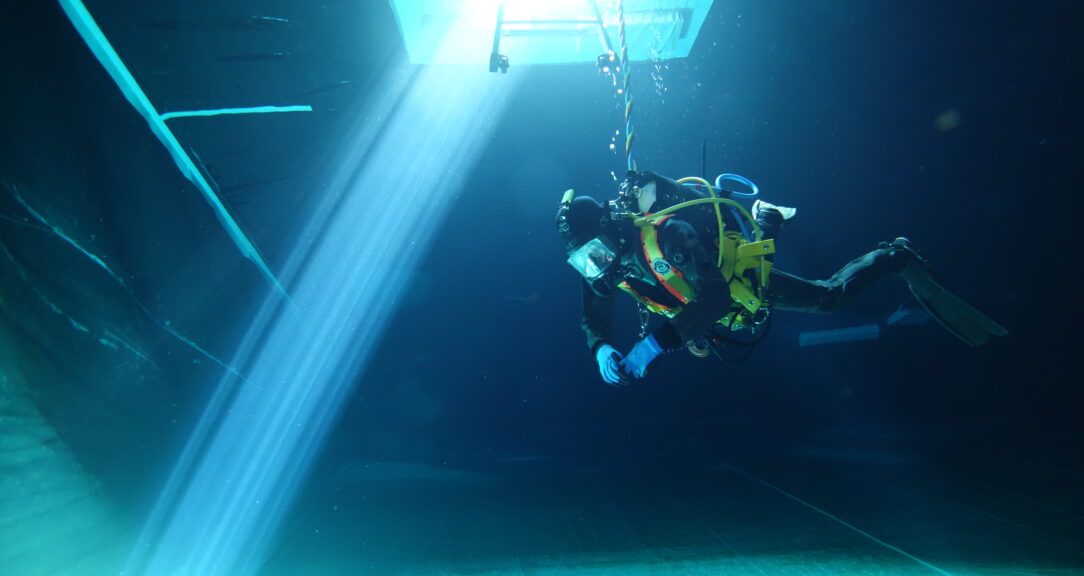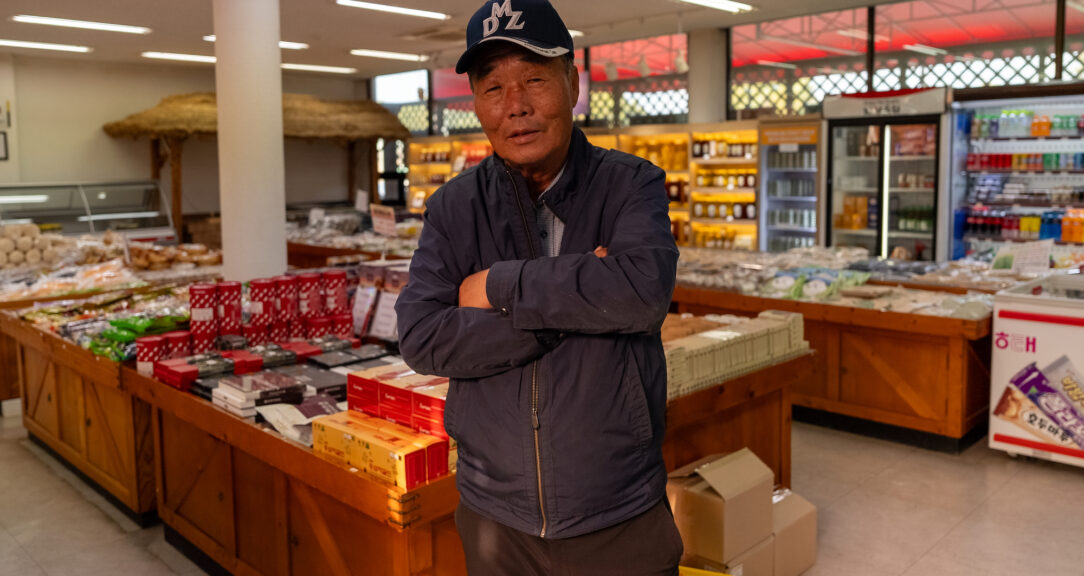Exposed to the elements and enveloped by seagulls: The image conjured up by an island caretaker is a lonely one. But that’s not the way Simon Parker, warden of Flat Holm, sees it.
“I think it’s more a comfortable feeling of being alone,” Parker says. “If you can crack that one, then you’re already onto a winner. I’m quite happy with my own company.”
Originally from Grimsby, England, the 38-year-old Parker spent most of his career as an military aircraft engineer but became interested in conservation after volunteering with wildlife trusts across the country. After a few years of volunteering, he found paid work in the field.
As warden, his role is to oversee conservation of the local flora and fauna, and to manage the island’s infrastructure, making sure the heating and power work in the island’s few buildings, monitoring for storm damage and keeping everything secure.
In this he hasn’t been entirely alone: Parker oversaw a busy 2023 season with conservation volunteers — including one to five volunteer wardens at any given time — plus day-tripping tourists and longer-term guests. These have included artists making sound pieces in a 19th-century gun pit, campers doing astrology and members of a yoga retreat performing ecstatic dance on the beach at 6 a.m.
The island means different things to different people: for some it’s about tourism, for others conservation, and still others would like to use it for film sets and retreats. Although conservation is his main priority, Parker must balance all these other interests.
“Every day is totally different,” Parker says. “Yesterday we were fixing the plumbing.”
A historic beacon
The Welsh island of Flat Holm lies 4 miles south of Cardiff in the Bristol Channel. Although open to all (as long as you pay a £5 landing fee), island access is determined by the channel’s tidal range, which can vary by 14 meters per day. At less than half a mile in diameter, Flat Holm includes the most southerly point in Wales as well as its most southerly pub — The Gull & Leak, where Parker also serves as landlord.
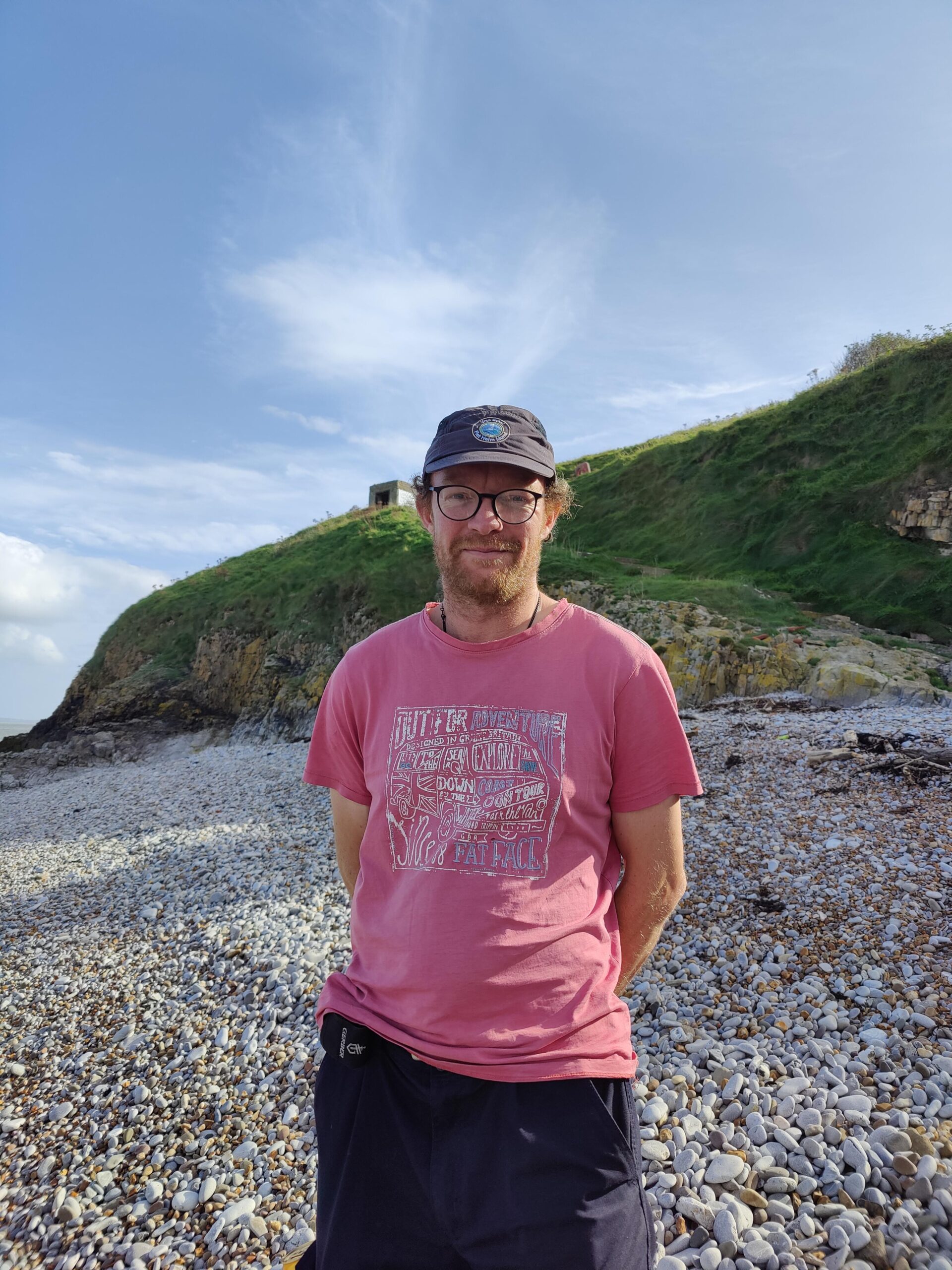
Occupied since at least the Bronze Age, Flat Holm’s shores are marked by remnants of its long history. Once home to monks and farmers — and frequented by smugglers — the island’s position en route to the ports of Cardiff and Bristol called for a lighthouse to prevent shipwrecks, which were particularly prevalent on the nearby rock islets known as The Wolves. The current lighthouse dates from 1737.
In 1897, the island was the site of the first wireless communication over open sea, with the message “Are you ready?” transmitted in Morse code to Lavernock on the Welsh mainland.
A foghorn station and foghorn keeper’s cottage were added in 1906; the foghorn is now silent, but the cottage can be rented as holiday accommodation. A former barracks now contains a museum, gift shop, and the pub. There’s also a farmstead, where Parker lives, and where groups visiting the island can stay. The ruins of a former cholera hospital and four 19th-century batteries are scattered around the island.
Conservation
But most of the island belongs to nature; its flora and fauna is so unique it was designated a Site of Special Scientific Interest in 1972. In spring and summer, Flat Holm is home to a colony of seagulls — mostly lesser black-backed gulls, but also herring gulls and great black-backed gulls. Part of Parker’s job is to track their numbers. It’s not exactly Hitchcock’s “The Birds,” but during breeding time it can feel a bit like it.
“[Gulls] are amazing animals,” Parker says. “When they come back, they will aim for the exact spot every time.”
But year-on-year their numbers are dwindling. In 2023, Parker and his volunteers recorded just 1,400 pairs of lesser black-backed gulls in their annual gull ringing survey, compared to close to 3,000 in previous years. The reason is food scarcity; crustaceans are disappearing from the channel, and landfills, gulls’ second-best choice for finding food, are closing. Unfortunately, there’s not a lot Parker can do to help.
“It’s a privilege seeing the gulls go through the cycle of life and death,” he says. “A lot of the chicks don’t make it, and a lot of the adults don’t make it. Nature can be pretty brutal. But I think that it’s a privilege seeing it all.”
Flat Holm is also home to an abundance of rabbits, a flock of wild sheep and a monitored population of slow worms, as well as rare plants like rock sea-lavender and wild leek, one of only five places in the U.K. where this latter plant grows.
In summer 2023, a BioBlitz event with 12 experts — including a mycologist, botanist and lepidopterist — uncovered a Dermestes undulatus beetle on Flat Holm that was last seen on the mainland in 2020.
“Because this beetle lives and thrives in the carcasses of dead sea birds, we had to go around the island and shake out these rotting carcasses to find them,” Parker recalls. It’s a tough job, but someone’s got to do it.
Becoming an island caretaker
Parker had previously served as a volunteer on Flat Holm and found out about the caretaker job through a previous warden. “I was looking for a way into something more rewarding after Covid — I think a lot of people were having these kinds of thoughts, interrogating their life choices,” he says. He realized he wanted to do something that resonated more with different parts of his personality: an appreciation for the wilderness and roughing it, and a love of facing new challenges.
The list of jobs on Flat Holm is endless, he says, and hard work features prominently: tree felling, bush cutting and scrub clearing. He makes a point of rotating the volunteers so no one person does too much heavy lifting.

Flat Holm was without a warden over the 2022-23 winter season, which meant Parker’s training involved a lot of learning on the job. To ease the transition, he drew on his prior knowledge as a volunteer, and advice from a former warden and past volunteers.
“And my engineering knowledge has been really useful for fixing things,” he adds. “There’s always stuff breaking.”
Still, going from engineering to conservation has been quite a career shift. He enjoyed the camaraderie and technical aspects of military aviation, but he loves the freedom and flexibility of working on Flat Holm. He has regular meetings with the mainland, where he receives targets he must meet, but he’s effectively his own boss — and it’s up to him to figure out how to keep everything running.
“If I can make something work with a broom handle and a bit of gaffer tape, that’s fine. It wouldn’t be fine when you’re working on aircrafts,” he explains. “A lot of creativity has come back.”
The job
The wardenship of Flat Holm is a permanent position and pays about £24,000 annually. Parker doesn’t have any bills — he only pays for food — and gets time off-island every four or five weeks. Since Flat Holm doesn’t have a landfill, they try to recycle as much as possible, and Parker takes the trash to the mainland once per month.
Holiday time is planned around island events, which means having more time off in the winter, when heating becomes more complicated. Already in September, Parker was collecting driftwood on the beach to stockpile as firewood.
“It’s interesting because a lot of my friends might say, ‘Oh, you probably want to go to some city and balance out being there,’” Parker says. “But actually, I can’t think of anything worse. I just want to go to another remote island, I think.”
What does he miss most besides friends and family? “Running in a straight line.”
Sustainability
Part of Parker’s conservation work includes cleaning up the trash that washes ashore from the Bristol Channel. Every month, Parker and the volunteers do a beach clean, and they log what they find so they can keep companies informed about what ends up in the sea. “It can be very depressing,” Parker says. “It’s the usual: lots and lots of plastic. Dog toys are a big one as we’re so close to the mainland.”
The island waste challenges have made Parker rethink his own consumption habits. At the heart of being the island’s caretaker is adopting a simpler and more conscious way of living. “You’re thinking, ‘Before I buy this thing, what do I actually need it for? And what am I going to do with it when I don’t need it anymore?’” Parker explains. “We need a more circular way of working through the economy rather than consume, discard, consume, discard. It’s way too wasteful.”
He’s realized it’s easy to get caught up in pursuing new things — a new job, new car, new house — without stopping to consider whether it’s really beneficial.
“Taking all of that away gives you headspace to reconsider those things, and then maybe focus on something that you actually want,” he adds. “We are on this track of possible self destruction, and maybe we need to refocus and think more about how we’re living as a whole, not just as individuals.”
On Flat Holm, Parker tries not to let the work consume him — neverending as it may be — and feeds his inner child by exploring new hobbies. He is learning to play the ukulele and encourages volunteers to take up new activities. Some have started doing watercolors and wood carving.
Isolated though he may be at times, Parker doesn’t plan to return to the mainland anytime soon. Six months in, he feels like he’s just getting started, but already the work is paying off: “It is already a lot better now than when I got here. So I think if that continues, then I’m quite happy here.”
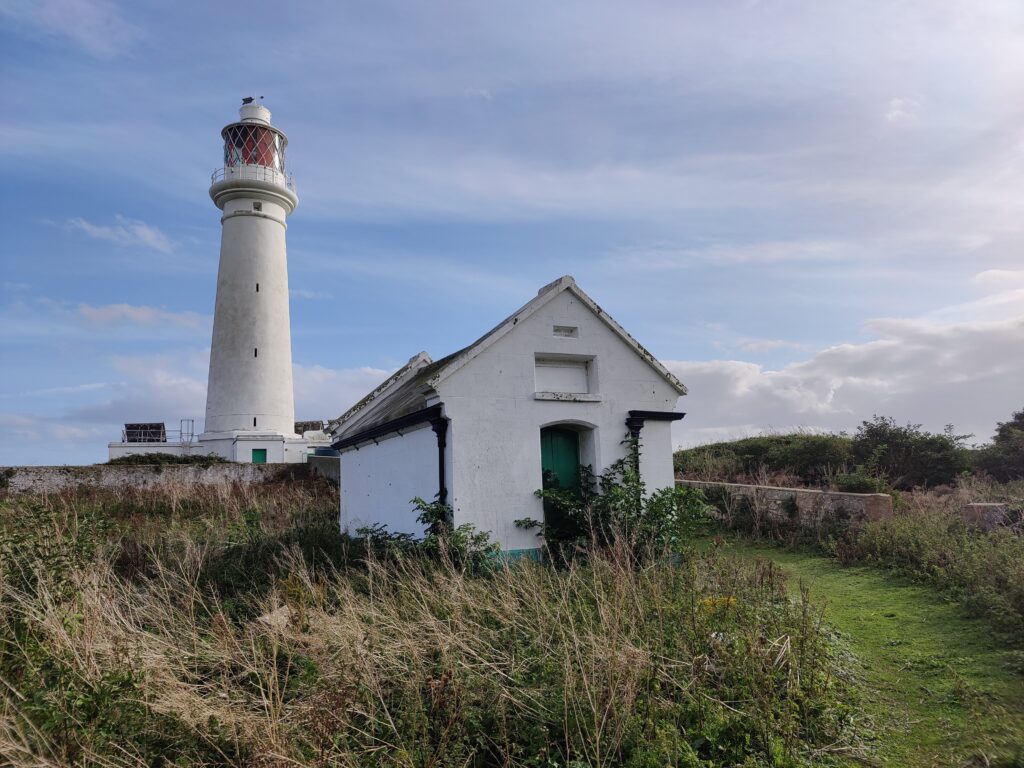
Read more
Sign up to keep up to date with ReThink Q.
